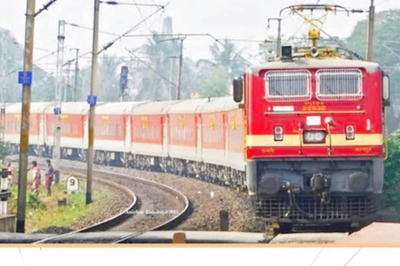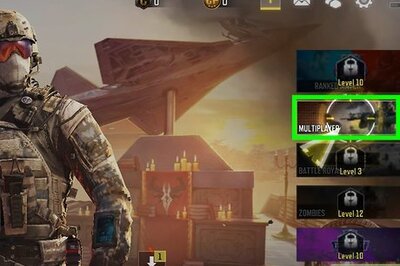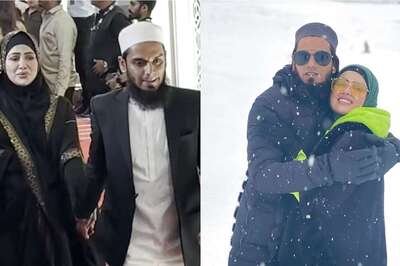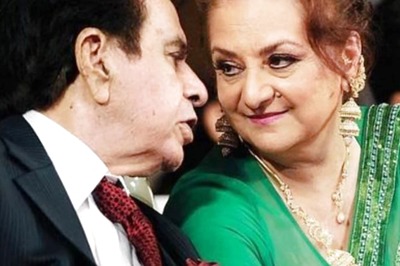
views
Mumbai: Searching for help half a world away, President Barack Obama on Saturday embraced India as the next jobs-creating giant for hurting Americans, not a cheap-labour rival that outsources opportunity from the United States.
Fresh off a political trouncing at home, Obama was determined to show tangible, economic results on his long Asia trip, and that was apparent from almost the moment he set foot on a steamy afternoon in the world's largest democracy. By the end of the first of his three days in India, he was promoting $10 billion in trade deals — completed in time for his visit — that the White House says will create about 54,000 jobs at home.
That's a modest gain compared with the extent of the enduring jobless crisis in the United States. Economists say it would require on the level of 300,000 new jobs a month to put a real dent in an unemployment rate stuck near 10 percent.
Yet to Obama, the bigger picture was the lucrative potential of an unleashed trading relationship between India and the United States. He seemed comfortable and energized away from Washington, days removed from the Republican Party's election thumping.
"For America, this is a jobs strategy," Obama said of his emphasis on trade, although it could stand as a motto for his 10-day trip. He is spending Sunday with young people in Mumbai and then heading onto meetings in New Delhi, the capital, before shifting later in the week ahead to Indonesia and economic talks in South Korea and Japan.
In India for the first time, Obama quickly got a sense of riches and poverty, history and tragedy.
His helicopter ride into this bustling financial center took in some of the country's slums. His luxury accommodation for the night, the Taj hotel, was one of the sites of a terrorist rampage in Mumbai that killed 166 people. Obama and his wife, Michelle, paid quiet tribute to the 31 people slain at the hotel, looking over their names inscribed in a memorial before meeting with victims' families and survivors of the shootings.
"We visit here to send a very clear message that in our determination to give our people a future of security and prosperity, the United States and India stand united," Obama said from an outdoor plaza, the soaring Gateway of India and the Arabian Sea behind him. "We'll never forget."
Indian commentators seized on the president's failure to mention Pakistan, India's neighbor and bitter rival. Pakistan was home to the 10 assailants.
The president also celebrated the life of a personal hero, Mahatma Gandhi. The Obamas spent time at the home-turned-museum where Gandhi once lived. They signed personal messages into the guest book and pledged to bring their daughters, Sasha and Malia, back one day.
Obama directly addressed the belief in the U.S. that India is robbing Americans of jobs. He acknowledged that many Americans only know trade and global commerce as the source of a job shipped overseas.
"There still exists a caricature of India as a land of call centers and back offices that cost American jobs. That's a real perception," Obama said. He noted the real concern in India that American corporate giants, if welcomed, would run mom-and-pop stories out of business and upend Indian culture.
Seeking to dismiss all "old stereotypes," Obama said the relationship between the countries is "creating jobs, growth, and higher living standards in both our countries. And that is the truth."
In the fallout of the U.S. elections, in which Democrats lost control of the House and Obama's ability to connect with his country was called into doubt, the president said one lesson learned was the need to set a better tone with business leaders. He was effusive on that front in Mumbai, gathering with top U.S. executives and studying up on their commerce with India.
"Just around this table you're seeing billions of dollars in orders from U.S. companies, tens of thousands of jobs being supported," he said. "We're a potential that has barely been scratched."
The White House arranged for four American chief executives who are in India for the occasion to brief reporters traveling with the president. They played up the importance of India as a trading partner and praised Obama's decision to come to the country to underscore that point in person.
Progress will take much more than public understanding. India's infrastructure remains an impediment to progress. And Obama's challenged India on the sore spot of shrinking its own barriers to trade and foreign investment. But his larger message was one of the united values and missions of the two largest democracies in the world.
Making that point, Obama even generated some laughter at his own expense, offering a reminder of the troubles at home.
"Our countries are blessed with the most effective form of government the world has ever known: democracy," he said. "Even if it can be slow at times. Even if it can be messy. Even if, sometimes, the election doesn't turn out as you'd like."
Onkar Kanwar, chairman of India's largest tire manufacturer, Apollo Tyres, said he appreciated the symbolism of Obama's coming to India during his first term and choosing to visit Mumbai first.
"Ties are getting closer and closer, which needs to be done. ... This demonstrates his commitment to another large democracy where he sees a lot of synergies," Kanwar said. "He's done all right."



















Comments
0 comment